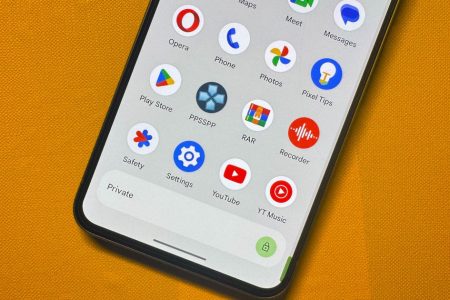
Google just made an announcement that could represent the death of a lot of Android phones.
Starting with Android 15, Google says, the minimum storage capacity of devices will jump up – leaving some devices obsolete.
The new requirement will mean phones, and tablets, will need at least 32GB of capacity in order to run the Android OS.
In reality it will need to be even more, since 75% of that 32GB must be allocated to the data partition.
Add to that the fact that Android 15 is going to take up close to a full 16GB and it makes sense that Google has moved the minimum requirement up to this new threshold.
While Google has worked to keep its mobile OS as minimal as possible, it has grown to a size that means there will be little space left for apps or anything else on a device with a minimal 16GB capacity.
This means that the more affordable end of the Android smartphone market will no longer be able to make savings by offering smaller capacity devices.
The rate of growth is pretty fast when you consider that Android 13, released in 2022, required the minimum jump up from 8GB to 16GB. Now, just a few years on, that has doubled in size.
Can Google enforce the new capacity?
Technically Google can’t force manufacturers to not produce phones with smaller capacities as long as they’re using the open source version of Android (AOSP).
What Google can do, is enforce this rule on companies that want to ship phones with its Google Mobile Service(GMS) as part of the package. In order to get a GMS license the device has to meet some minimum requirements from the guidelines, including that new capacity of 32GB storage minimum.
While that might seem like something that could be circumvented, by not have a GMS license the device will not be able to access core Google services like the Google Play Store or Google Play Services.
On the plus side
This can be a good thing as it means budget phones will offer a better user experience, with smoother running.
It should also mean a greater capacity for apps and games on devices, which is never a bad thing.

Luke has over two decades of experience covering tech, science and health. Among many others, Luke writes about health tech…
Google quietly just announced a step toward AI seeing the world better than humans can
Google has announced some new updates to its AI Overviews in Google Search, specifically some new screens in Circle to Search.
What was spotted more subtly, by beta testers over at AndroidAuthority, was just how smart this can be.
Read more
Playing Xbox games on Android just got a lot easier with the Backbone One
The Backbone One Xbox Edition controller is officially here and clad in all the green Xbox-inspired glory, making it easier than ever to stream Game Pass games on the go. The controller mimics the look, feel, and layout of the Xbox One controller, even including a dedicated Xbox button for launching in-game menus.
The main purpose for this controller is to let players dive into Xbox Cloud Gaming (Beta) with fewer obstacles, but it can also work directly with Xbox Remote Play. For those unfamiliar, this feature lets you play your own library of games straight from your Xbox.
Read more
Waze nixes Google Assistant on iPhones, but something better may be coming
If you’re still using Waze as your favorite GPS app, you’ll be seeing the loss of a certain function. Waze is ending its support for Google Assistant in the iOS version of the app.
A representative for the company took to the Waze public forum yesterday to announce that it will be phasing out Google Assistant after trying to fix the feature for a year. They said the iOS version of Waze has been suffering numerous issues with Google’s AI voice chat feature that it had tried to address for “over a year” to no avail, and as result it won’t be able to patch it.
Read more
